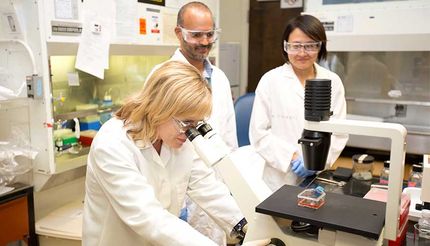Medivir Announces Positive 48-week Interim Data from TMC435 Hepatitis C Phase 2b ASPIRE Study in Treatment-Experienced Genotype-1 Patients
Advertisement
Medivir AB announced results from the ASPIRE phase 2b study that evaluates the addition of once daily TMC435 to pegylated interferon and ribavirin in patients with genotype 1 chronic hepatitis C whose prior treatment with pegylated-interferon (PegIFN) and ribavirin (RBV) was unsuccessful either because they relapsed, had a partial response or had a null response.
Bertil Samuelsson, CSO, of Medivir commented, "We are delighted with the encouraging efficacy and safety results shown by TMC435-based triple therapy over pegylated-interferon and ribavirin, in this 48-Week interim analysis of the ASPIRE study in treatment experienced genotype-1 hepatitis C patients. This patient group is known to be the most difficult one to treat, where in particular prior null and partial responder groups respond very poorly upon retreatment with PegIFN/RBV alone. With several global phase 3 clinical trials ongoing in hepatitis C patients we are expecting the momentum to continue with regards to the development of TMC435.”
TMC435, a potent, once-daily, oral hepatitis C virus protease inhibitor is being developed by Tibotec jointly with Medivir. The randomized, placebo-controlled, double-blind ASPIRE study evaluates the effect of TMC435 in combination with pegylated-interferon and ribavirin in 462 patients infected with genotype-1 hepatitis C virus who have failed prior treatment with PegIFN/RBV. The study includes patients that have relapsed, achieved partial response, or achieved no response (null responders) to SoC treatment and where 62 percent (287/462) of patients overall had advanced liver disease, periportal or septal fibrosis or cirrhosis (scarring of the liver) upon study entry (Metavir score F2-F4).
Patients were equally randomized to 1 of 7 different treatment arms: 6 TMC435 treatment arms and one placebo arm. TMC435 was administered once daily at a dose of either 100 mg or 150 mg given for either 12, 24, or 48 weeks in combination with PegIFN/RBV. PegIFN/RBV treatment was continued in all patients until the study completion at week 48. This interim analysis was performed when all patients had completed 48 weeks of treatment or discontinued earlier. The analysis was done based on the intent-to-treat, ITT, population which included all randomized subjects who took at least one dose of the study medication. SVR4, Sustained Virologic Response 4 weeks after planned end of treatment data, was available for 94% and 84% of TMC435 and placebo patients respectively.





































